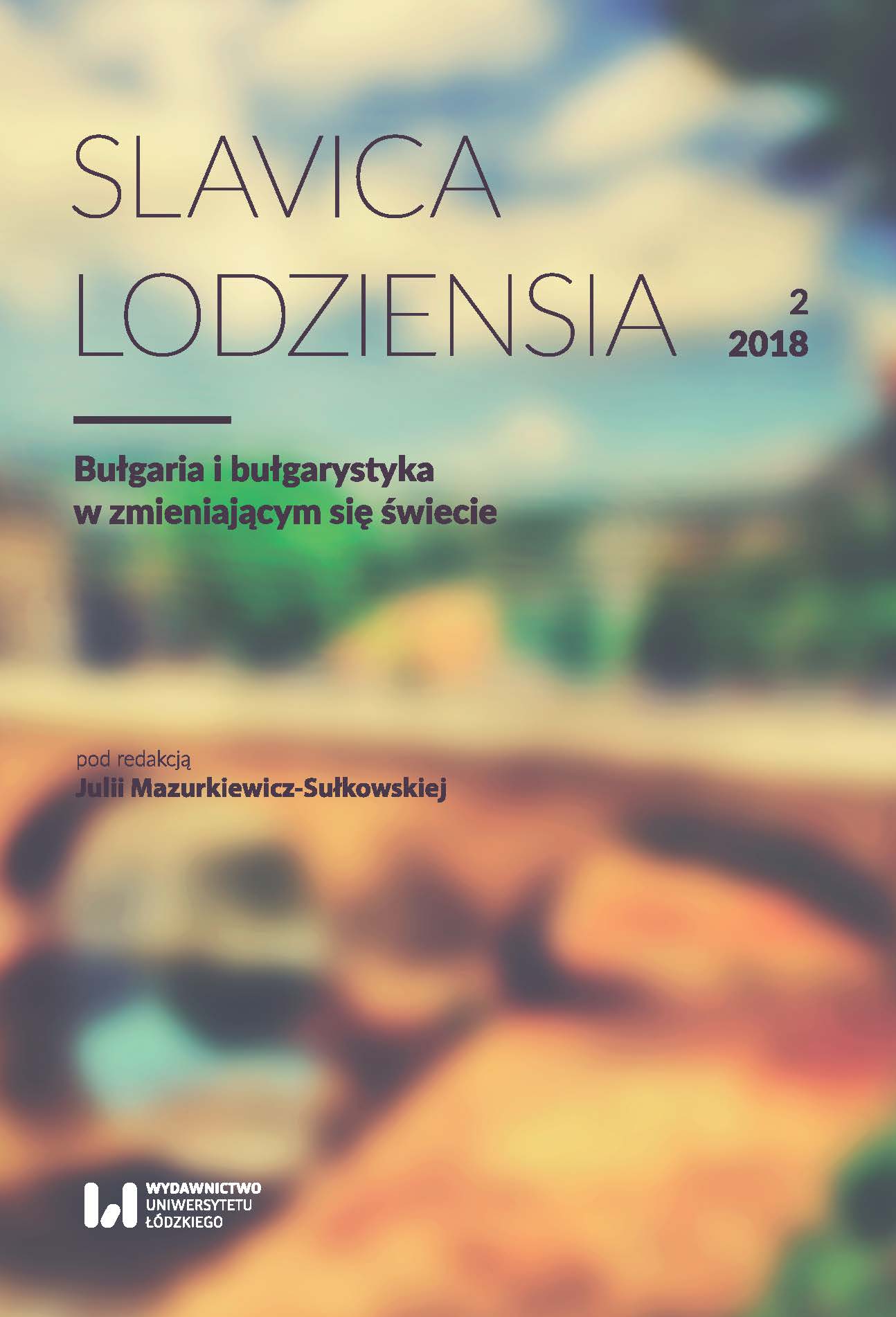Съвместна употреба на кирилица и латиница в български текст –защо и кога
DOI:
https://doi.org/10.18778/2544-1795.02.22Ключевые слова:
Latin as an international alphabet, bilingualism, code-switching and codeblending, digraphia, transliteration of the Bulgarian letters with Latin onesАннотация
The author investigates in which cases the joint use of Cyrillic and Latin is used in Bulgarian text and for what purpose: definition, determination, citation, operative language, code-switching and code-blending, use as a stylistic tool and parallel bilingual text. The nature of these uses is described and the extent to which they are manifestations of phenomena such as bilingualism and digraphia. The general conclusion is that the joint use of Latin and Cyrillic is the result of the expansion of bilingualism with English. More and more Bulgarian citizens have an extended field of use of variants of two languages and two graphical systems. Secondly, the application of the Latin alphabet is a step towards the universal language of the image, since its graphic image acts as a visual symbol of pragmatic knowledge.
Библиографические ссылки
Банкова Е. (2017), Защо sms-и на кирилица излизат по-скъпо от тези на латиница? Dariknews. bg, 10.02.2017, https://dariknews.bg/novini/bylgariia/zashto-sms-i-na-kirilica-izlizat-po-skypo-ot-tezi-na-latinica-video-2002751 (8.02.2018).
Google Scholar
Виденов М. (2000), Увод в социолингвистиката, София.
Google Scholar
Захариева М. (2017), SMS-ът на кирилица – тройно по-скъп! Дискриминация ли е?, Dnes.bg, 31.01.2017, https://www.dnes.bg/obshtestvo/2017/01/31/sms-yt-na-kirilica-troino-po-skyp-diskriminaciia-li-e.330432 (8.02.2018).
Google Scholar
Кирова Л. (2002), Билингвизъм и диграфия в речта на българските геймъри, [в:] Проблеми на социолингвистиката, t. VII, Билингвизъм и диглосия – съвременни проблеми, Международно социолингвистическо дружество, София, Делфи, 2002, с. 100–110. Също: LiterNet, 11.08.2001, № 8 (21), http://www.liternet.bg/publish3/lkirova/gamers.htm, (8.02.2018).
Google Scholar
Dale, I. H. (1980), „Digraphia”, „International Journal of the Sociology of Language”, vol. 26, p. 5–14. Published Online: 2009-10-07|DOI: https://doi.org/10.1515/ijsl.1980.26.5.
Google Scholar
Dariknews.bg (2007), Решен е проблемът с изписването на euro на български, 18.10.2007, https://dariknews.bg/novini/sviat/reshen-e-problemyt-s-izpisvaneto-na-euro-na-bylgarski-189825 (9.02.2018).
Google Scholar
Gumperz J., Cook-Gumperz J. (1982) Introduction, [in:] J. Gumperz (ed.), Language and Social Identity, Cambridge.
Google Scholar
Mohanty A. (1994), Bilingualism in a Multilingual Society, Mysore, Central Institute of Indian Languages.
Google Scholar
Technews.bg (2013), Европарламентът ще пише на български с кирилица, 7.08.2013, https://technews.bg/article-53738.html (9.02.2018).
Google Scholar
Загрузки
Опубликован
Как цитировать
Выпуск
Раздел
Лицензия

Это произведение доступно по лицензии Creative Commons «Attribution-NonCommercial-NoDerivatives» («Атрибуция — Некоммерческое использование — Без производных произведений») 4.0 Всемирная.




